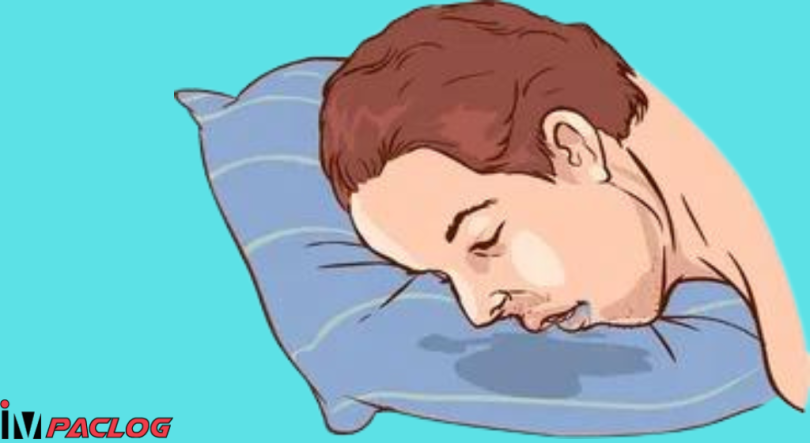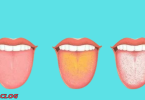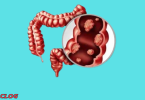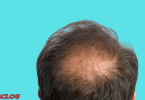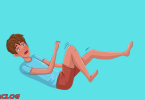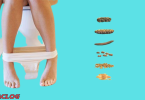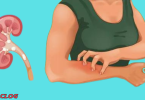Have you always wondered why a thin layer of saliva comes out of your mouth when you wake up in the morning? In this case, you are experiencing drooling during sleep. This happens for many reasons and is a common condition for most people, but it often indicates a serious condition.
Definition of drooling during sleep: It is one of the sleep disorders that makes a person feel embarrassed in front of others. It often spreads to children while their teeth are developing. It happens that a child drools when he wakes up or during sleep, but with adults the situation is completely different, because after waking up you notice that the pillow is wet. This may be due to some diseases that can increase saliva production, and millions of people suffer from this condition daily while they sleep.
The causes of drooling during sleep are:
1- Sleeping constantly on one side: Do you constantly sleep on one side, whether on the right or on the left? Your answer to this question may be the reason behind your drooling during sleep. When you sleep on your side, it forces your mouth open throughout sleep and forces saliva to flow onto the pillow instead of the floor. These are the most common causes of drooling during sleep.
2- Sinusitis: Sinusitis causes difficulty swallowing and breathing, which leads to drooling during sleep. The situation gets worse when you have a cold because it forces you to breathe through your mouth due to a stuffy nose, which causes saliva to flow from your mouth.
3- Acidity or esophageal reflux: If you suffer from acidity or esophageal reflux, this may be the reason for increased saliva secretion in the mouth. Because it stimulates the production of stomach acid in the esophagus, which leads to increased saliva.
4- Allergy or poisoning: Excessive saliva production can occur due to nasal allergies, food allergies, and pesticide poisoning. These conditions often lead to excessive drooling. Sometimes a serious allergy or poisoning threatens your life, so you need to constantly seek help from a doctor.
5- Tonsillitis: When the tonsils and glands in the back of the throat become inflamed, they limit the production of saliva that accumulates in the back of the throat and is called tonsillitis. This is one of the common causes of drooling during sleep. You may experience drooling from your mouth while sleeping due to a sore throat.
6- Dental problems: If you suffer from gum and tooth infections and a host of other problems related to dental health, saliva production may increase.
7- Congenital mouth defect: You may suffer from a congenital mouth defect if the mouth or tongue is large and the teeth are narrow or if swollen lymph nodes lead to drooling. To overcome this problem, you must know the cause of drooling during sleep and the best way to reduce it. This condition involves avoiding sleeping on your side because this position promotes jaw opening, which results in the mouth opening during sleep.
8- Taking certain medications: There are a group of side effects associated with some specific medications, including excessive drooling. Such as nervous breakdown medications, antidepressants, and medications such as pilocarpine and morphine.
9- Neurological disorders: You may find it difficult to control saliva if you suffer from a neurological disorder. These conditions may include facial paralysis, Parkinson’s disease, Alzheimer’s disease, stroke, autism, amyotrophic sclerosis, or multiple sclerosis.
10- Other reasons: One of the side effects of pregnancy is eating foods that contain a high percentage of acid.
Treatment of drooling during sleep:
Drooling may be due to a certain health problem. Therefore, you must first identify the problem to find the best treatment. It is best to consult a doctor first in case of allergies, poisoning, sinus infections, tonsillitis, dental problems, nerve infections, and other diseases that cause drooling. Here are other steps you can take to prevent drooling during sleep.
1- Sleeping on your back: A good idea that you can do is to sleep on your back because this helps drain saliva to the back of the throat and thus dry out the mouth. So it is a good idea, instead of continuing to sleep on your side, you will notice a clear change and improvement in your condition.
2- Headrest: When you support the head when sleeping at night because the upright position of the head supports the mouth and prevents the flow of saliva from the mouth during sleep. Consult a doctor about the medications you are taking: As we mentioned, some medications may cause drooling. You need to talk to a doctor to have this procedure done. Some changes in medications have harmful side effects.
3- Breathing through the nose: Breathing through the mouth is one of the main causes of drooling during sleep. It’s common to sleep with your mouth open, especially when you have a cold, so treating congestion helps relieve the blockage.
4- Practice deep breathing exercises: It is good to include deep breathing exercises in your daily routine. Try deep mouth breathing to improve breathing habits and better manage and treat stress.
5- Allergies: Taking allergy medications causes difficulty breathing through the nose, so try to treat allergies in a way that does not cause any side effects.
- Patience: Before doing anything, you must be patient until you stop drooling during your sleep. This will not happen overnight, and you may need to drink hot drinks such as banong to increase the feeling of relaxation and comfort.
Mayo Clinic study recommendations for treating sleep drooling are:
Evidence suggests that you can do certain facial exercises that help relax facial muscles and reduce skin sagging that occurs during sleep, so as not to encourage the buildup of saliva between the gums and lips.
- You can massage your face with lavender oil to help relieve drooling while sleeping.
After tooth extraction, it is recommended to brush your teeth regularly and rinse your mouth after every meal. Massaging the mouth before eating is an effective way to reduce drooling.
- Do not eat quickly or regularly, and chew food slowly to reduce the secretion of saliva in the mouth.
- Avoid eating spicy foods because they stimulate the production of saliva in the mouth, especially before bed.
- Treating sleep apnea because if you have difficulty sleeping, such as heavy breathing, loud snoring, and drooling, these conditions are exacerbated by smoking, high blood pressure, heart disease, and stroke.
- Try to lose weight, because excess weight leads to breathing problems during sleep, and more than half of the 12 million people in the United States who suffer from sleep apnea are overweight, so try to change your diet to reach a healthy weight that allows you to lose weight. the weight. the weight. Help you lose weight. . Treating breathing problems during sleep.

